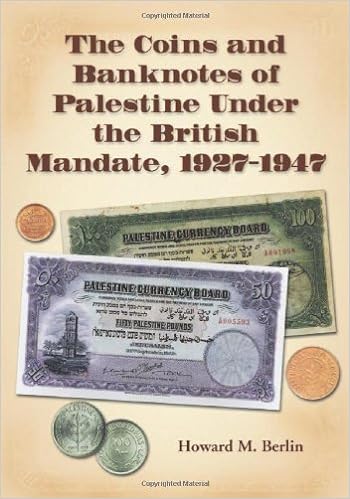Reza Aslan, and Iranian-American, born Muslim, converted to Christianity,...and returned to Islam.
Perhaps his personal history, his search for religious truth, colors his perception...but he provides scholarly research in his best-seller, Zealot: The Life and Times of Jesus of Nazareth.
The picture he provides of Jesus is not one suggested by John 1:29, as 'the Lamb of God.'
Instead, he paints a picture of a revolutionary, a rebel, ready to lead the Jews against Rome!
Reza Aslan(Persian:رضا اصلان,IPA: [ˈɾezɒː æsˈlɒːn]; born May 3, 1972) is an Iranian-American author, commentator and religious scholar. He has written two books on religion:No god but God: The Origins, Evolution, and Future of IslamandZealot: The Life and Times of Jesus of Nazareth.
Aslan was born into a Shia Muslim family.[32]He converted to evangelical Christianity at the age of 15,[5]and converted back toIslamthe summer before attending Harvard.[6]
On 22 October 2005,The Guardiancalled him "aShiaby persuasion".[33]
In a 2013 interview withWNYChostBrian Lehrer, Aslan said: "... I'm definitely aMuslimandSufismis the tradition within Islam that I most closely adhere to."[34]He also proclaims himself a 'genuinely committed disciple of Jesus of Nazareth.'[32]
Reza Aslan - Wikipedia, the free encyclopedia
1. "....there are only two hard historical facts about Jesus of Nazareth upon which we can confidently rely: the first is that Jesus was a Jew who led a popular Jewish movement in Palestine at the beginning of the first century C.E.; the second is that Rome crucified him for doing so.
2. But when combined with all we know about the tumultuous era in which Jesus lived—and thanks to the Romans, we know a great deal—.... help paint a picture of Jesus of Nazareth that may be more historically accurate than the one painted by the gospels.
Indeed, the Jesus that emerges from this historical exercise—a zealous revolutionary swept up, as all Jews of the era were, in the religious and political turmoil of first-century Palestine...
.....bears little resemblance to the image of the gentle shepherd cultivated by the early Christian community.
3. ...Crucifixion was a punishment that Rome reserved almost exclusively for the crime of sedition.
The plaque the Romans placed above Jesus’ head as he writhed in pain—“King of the Jews”—was called a titulus and, despite common perception, was not meant to be sarcastic. Every criminal who hung on a cross received a plaque declaring the specific crime for which he was being executed. Jesus’ crime, in the eyes of Rome, was striving for kingly rule (i.e. treason), the same crime for which nearly every other messianic aspirant of the time was killed.
Nor did Jesus die alone. The gospels claim that on either side of Jesus hung men who in Greek are called lestai, a word often rendered into English as “thieves” but that actually means “bandits” and was the most common Roman designation for an insurrectionist or rebel."
"Zealot: The Life and Times of Jesus of Nazareth,"
byReza Aslan
Perhaps his personal history, his search for religious truth, colors his perception...but he provides scholarly research in his best-seller, Zealot: The Life and Times of Jesus of Nazareth.
The picture he provides of Jesus is not one suggested by John 1:29, as 'the Lamb of God.'
Instead, he paints a picture of a revolutionary, a rebel, ready to lead the Jews against Rome!
Reza Aslan(Persian:رضا اصلان,IPA: [ˈɾezɒː æsˈlɒːn]; born May 3, 1972) is an Iranian-American author, commentator and religious scholar. He has written two books on religion:No god but God: The Origins, Evolution, and Future of IslamandZealot: The Life and Times of Jesus of Nazareth.
Aslan was born into a Shia Muslim family.[32]He converted to evangelical Christianity at the age of 15,[5]and converted back toIslamthe summer before attending Harvard.[6]
On 22 October 2005,The Guardiancalled him "aShiaby persuasion".[33]
In a 2013 interview withWNYChostBrian Lehrer, Aslan said: "... I'm definitely aMuslimandSufismis the tradition within Islam that I most closely adhere to."[34]He also proclaims himself a 'genuinely committed disciple of Jesus of Nazareth.'[32]
Reza Aslan - Wikipedia, the free encyclopedia
1. "....there are only two hard historical facts about Jesus of Nazareth upon which we can confidently rely: the first is that Jesus was a Jew who led a popular Jewish movement in Palestine at the beginning of the first century C.E.; the second is that Rome crucified him for doing so.
2. But when combined with all we know about the tumultuous era in which Jesus lived—and thanks to the Romans, we know a great deal—.... help paint a picture of Jesus of Nazareth that may be more historically accurate than the one painted by the gospels.
Indeed, the Jesus that emerges from this historical exercise—a zealous revolutionary swept up, as all Jews of the era were, in the religious and political turmoil of first-century Palestine...
.....bears little resemblance to the image of the gentle shepherd cultivated by the early Christian community.
3. ...Crucifixion was a punishment that Rome reserved almost exclusively for the crime of sedition.
The plaque the Romans placed above Jesus’ head as he writhed in pain—“King of the Jews”—was called a titulus and, despite common perception, was not meant to be sarcastic. Every criminal who hung on a cross received a plaque declaring the specific crime for which he was being executed. Jesus’ crime, in the eyes of Rome, was striving for kingly rule (i.e. treason), the same crime for which nearly every other messianic aspirant of the time was killed.
Nor did Jesus die alone. The gospels claim that on either side of Jesus hung men who in Greek are called lestai, a word often rendered into English as “thieves” but that actually means “bandits” and was the most common Roman designation for an insurrectionist or rebel."
"Zealot: The Life and Times of Jesus of Nazareth,"
byReza Aslan


